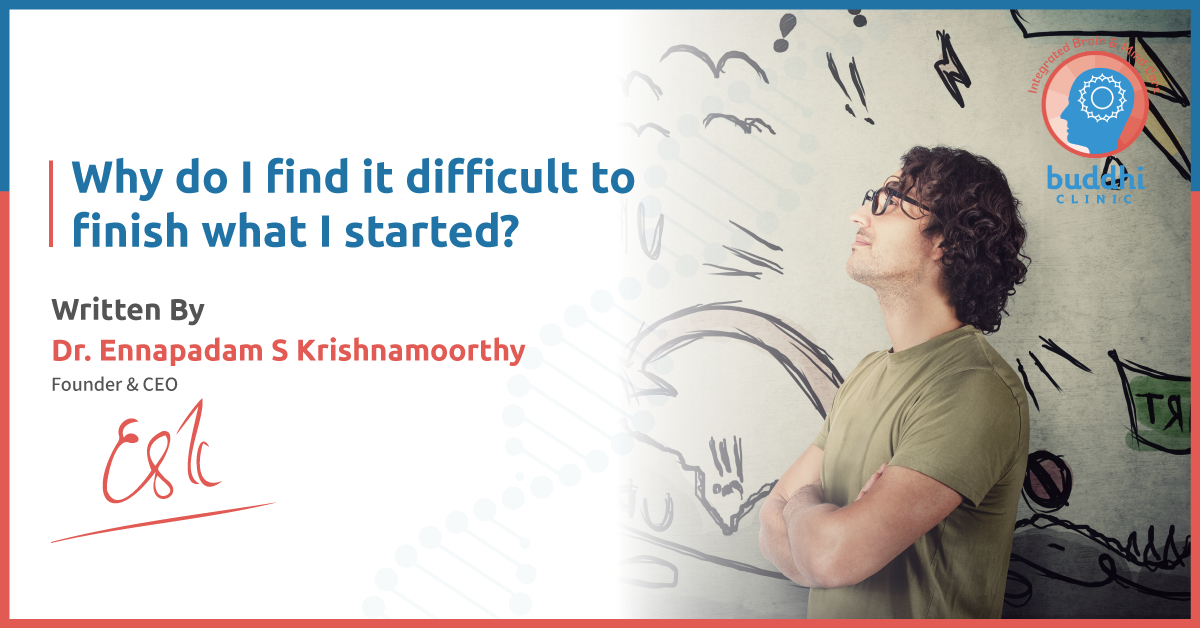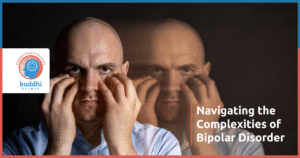A disorder that affects adult’s ability to pay attention, control moods and complete tasks, explains the behaviour.
A lawyer who quit his profession because he could not pay attention to what his opponent was saying in court. A start-up founder, brilliant at strategizing, lost money because he could not send invoices on time.
And then we take you back 500 years to the story of Leonardo Da Vinci, one of the greatest artists the world has ever known, but also, a scientist-painter who never got around to finishing what he started. He would procrastinate, skip from one task to another, and in his lifetime managed to complete only 20 works of art, leaving countless unfinished.
Attention Deficit Disorder (ADD), say mental health experts, brain disorder that affects adult’s ability to pay attention, control moods and complete tasks, explains the behaviour.

Though not recognised as a mental disorder till the 1960s, studies have found that there are more than 350 million adults affected with ADD globally (says a study published in 2021 in the Journal of Global Health) and has been shown to be progressively increasing over the years. And the pandemic seems to have more adults seeking help for the condition, says neuropsychiatrist Dr. Ennapadam S Krishnamoorthy, founder of Buddhi Clinic in Chennai & Coimbatore.
“The Frontal lobe of the brain is the executive brain, responsible for planning, organisational skills, focus, and time management. It is also the site of the social brain, which gives one the ability to regulate behaviour. Both these are affected in those with ADD,” he says. The shift to remote working and months spent in isolation during the pandemic resulted in social cues from the environment being r replaced b y cognitive cues, which a person with ADD tends to struggle with, explains Dr Krishnamoorthy. “For instance, a person with ADD may do certain tasks in the office only when they are reminded of it by a colleague. The social cues are not there when you are working from home, and those with ADD may lose track of their daily tasks.”
There is a misconception that Attention Deficit Hyperactive Disorder (ADHD) presents only in children, but that is not so, explains Dr. Krishnamoorthy. In adults “Hyperactivity” is replaced with impulsivity, which is why it is referred to as ADD.
Sonal Singh, a certified ADHD/ADD coach, says the condition is exaggerated in times of transition, like when one goes from college to work, or is promoted from executive manager, moves cities, and so on. “Neurotypical people find it easier to adjust to change,” says Sonal, who adds that in the past couple of years, startup founders have begun to make up for a larger part of her clientele. “These are otherwise bright young adults with high IQs, but have difficulty focusing and paying attention.”
Chennai based psychiatrist Dr. N. Rangarajan though believes people sometimes reach out for a clinical diagnosis to validate their difficulties in coping with change. “Several of my patients seek help for self-diagnosed conditions that readymade online tests tell them they have. ADD needs to be clinically diagnosed. For some it may just be merely about learning to accept change.”
A Study published in the Indian Industrial Psychiatry Journal indicates that 17% to 22% of adults reporting to psychiatric services reporting for other mental conditions have been found to have ADD. In some cases says Dr. Krishnamoorthy ADD can masquerade as depression or anxiety, which also affect working (short-term) memory and the ability to pay attention. “In these cases, if the mental health issue is sorted out, the problems of attention deficit will disappear.”
One of the most visible signs of ADD is procrastination. “The person will be brilliant at ideating, but find it impossible to send an email or file an invoice” says Sonal.
King’s College London researcher Professor Marco Catani, who presented his hypothesis on da Vinci in 2019, in the journal “Brain’, attributes his explanation of the painter’s ADD to historical records which showed he spent excessive time planning projects but lacked the perseverance’. “Those with ADD may also make promises they don’t keep because they have forgotten almost as soon as they made them. This can play havoc with both work life and personal relationships,” says Sonal . “In the end, ADD is all about emotional regulation. “ And the first step is to pay attention to the signs.






